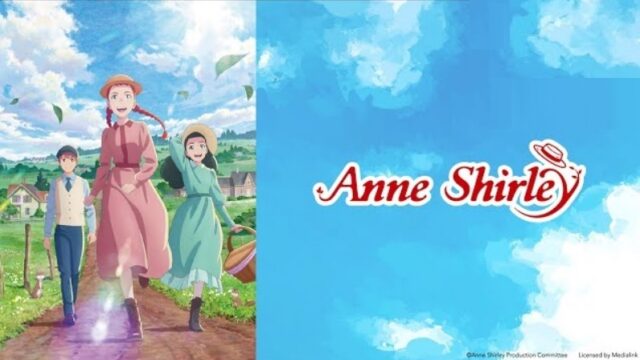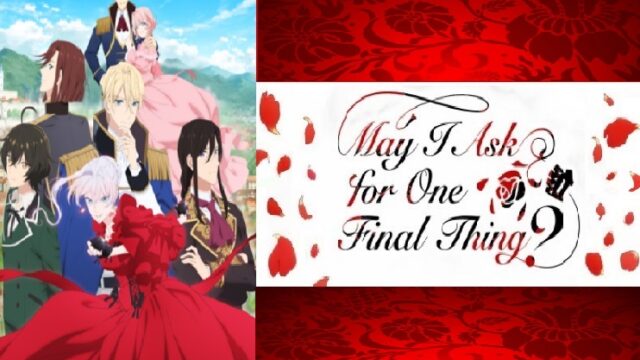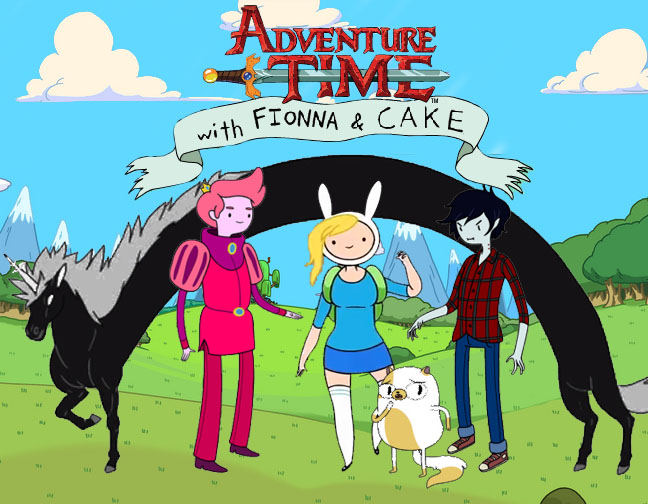Nowhere To Go But Up: “Tower of God’s” Creative Staff on the New Anime
It’s always a great thrill when a popular manga or comic gets to transition into animation. A lot of the time this opportunity allows story to be explored in exciting, new ways and for the limits of animation to really push what’s possible with the text. This shift into anime isn’t always successful, but it typically results in the series’ gaining more eyes and leads to big things for the series. Lee Jong-hui’s Tower of God is one of the most popular webtoons to come around and it’s amassed billions of views since the story’s debut in 2010. Tower of God’s popularity has reached such heights that Crunchyroll has partnered up with the series to turn it into one of the company’s first “Crunchyroll Originals.”
Tower of God looks at a boy’s journey through a mysterious, enormous Tower as he strives to reach the top of it and survive the many hurdles and challengers that are on each floor. Tower of God has just made its debut on Crunchyroll to great acclaim and it’s already setting a strong precedent for Crunchyroll’s upcoming original productions. Tower of God boasts a distinct art style and engaging music, all of which compliments its addictive story. We had the chance to touch base with some of the creative talent that’s helped bring Tower of God to life as they get candid on the development, evolution, and many of the creative decisions that have been made with this new anime iteration of the Tower of God super franchise.
Yoshida Erika, the writer of Tower of God’s anime, elaborates on the adaptation process and the show’s transition into an anime series….
Daniel Kurland: Talk a little about both the appeal and the pressure of adapting something that already has such a popular fan base.
Yoshida Erika: The good thing about it is that we were able to create an opportunity for many people to see the series. In Japan, nearly 80 anime will be broadcast in the same season. Even though a series might be interesting, some people won’t watch a single episode… Shows are dropped after zero episodes. I’m confident people will enjoy the series if they watch the first episode, so I hope people will look forward to Tower of God. I’d be lying if I said I didn’t feel any pressure, but the excitement of working on the adaptation of an interesting series was stronger.
Tower of God has literally years of content and hundreds of “episodes” to pull from. Do you plan to stick to all of that story, or instead look for ways to revise and remix the events of the webtoon into something that’s a little different?
We discussed in meetings which “episodes” we would cut. The opinion that it might be better to start from the second arc was expressed, but we wanted to show Bam’s growth starting from the first episode, so this time we adapted the first arc. Since the series has been running for so long, we subtly foreshadowed events that take place during the second arc and onward. I hope people enjoy the unique perspective offered by the anime, such as condensed episodes and deep dives into characters.
The scope of Tower of God’s story impressively covers 10,000 years as it explores the history of the tower and the people that are important to it. Was the scope of all of that intimidating at all?
I really enjoyed reading and analyzing the original work. If I had to pick something, it would be the sections that haven’t been explained yet that I struggled with. Even if they didn’t bother me while reading the manga, when it came to adapting the series, when I encountered things that bugged me, I really struggled with how to capture them so that they wouldn’t interfere with future developments. There are still a lot of mysteries even for those keeping up with the ongoing series, but it should be a product that can be enjoyed by viewers unfamiliar with the original work and one without inconsistencies.
Do you have a favorite character to write for and have you noticed that changing at all as the series continues to grow?
Rak has consistently been my favorite character. Though Rak is consistent in his beliefs, I believe he’s actually grown a lot. I wish Rak would call me a Black Turtle. I think my impression of Rachel changed the most. Rachel is easy to dislike after a single reading, but I believe the things she carries and the things that torment her are things that we all have inside our hearts. Whether or not you can act while also carrying those things is another question, so for better or for worse, that must be her strength.
Tower of God has a lot to say about class and social status with how it represents the “10 Great Families,” Irregulars, and Chosen Regulars. Has that been a satisfying aspect of the series to flesh out and explore?
Inequality and class are inextricable elements of Tower of God. Many recent works featured at the Cannes Film Festival deal with poverty and inequality, and I believe they’re subjects we should be discussing now. I found it really interesting to write about the differences between the lifestyles and beliefs of people from different regions. When I think about whether or not Tower of God made me consider the inevitable decline of the prosperous, the next arc made me feel that there is an unbridgeable gap between the haves and have-nots, and the more you read, the more you’re made to think about it.
Do you have a preference between writing scenes that focus on action and heavy drama, or ones that prioritize characters and lighter relationships?
This is a very difficult question. I don’t have a preference, but there are things I like about both. The thing I’m most careful of when writing is the humanity of the characters. I believe people are multifaceted, possessing both good and bad qualities, so I’m careful not to lean too far in either direction in depicting them.

***
Takashi Sano, Tower of God’s director discusses the stress that surrounded the project…
Daniel Kurland: It must always be a little nerve-racking to start new projects, but was this a little easier due to having the power of someone like Crunchyroll to help back the project and have confidence in it?
Takashi Sano: Since I focus on creating, I let the producers handle partner interactions and didn’t experience it for myself. However, I do believe that it’s a good thing that many people will see the series we created.
Each floor of the Tower is supposed to be its own distinct environment. What kind of efforts did you take to help make these areas feel different?
Aside from the first and last episodes, all of the episodes take place on the same floor. We made sure not to give the impression that the characters were climbing floors.
The Tower is full of many different environments and species. Which were the most fun to develop, or were there any that greatly changed along the way?
Since all kinds of characters make appearances, it was difficult to bring them all together. Some characters don’t have names, while others leave immediately despite being named. Learning all of them from the original work took a lot of effort.
Shinsu is a powerful force in this series that is basically like Tower of God’s equivalency to magic. What did you consider or look to for inspiration when putting together the look for how Shinsu works?
We didn’t look at anything in particular. Assistant Director Hanai and I bounced ideas off each other to come up with the look.

***
Tower of God’s music director, Kevin Penkin, also has to deal with unique obstacles in the anime series…
Daniel Kurland: Tower of God has a video game adaptation. Did you look towards the music or themes of that for any sort of inspiration or guide, or did you want this to be a separate entity?
Kevin Penkin: Completely separate. I was quite passionate about trying to put a unique-as-possible stamp on this incredible series.
You’ve done impressive work on Made in Abyss, which has earned you a lot of acclaim. How do you view the music and sound for Tower of God to be different than the other series that you’ve worked on?
Tower of God had a completely different approach to Made in Abyss. Namely, while Made in Abyss dealt with the use of scale in music, Tower of God deals with radical changes in texture to sonically amplify the bold use of contrasting colors.
Each floor of the Tower is its own distinct environment. Did you try to reflect that through the music of each floor, too?
I did think about that before realizing that approach would be extremely difficult to scale. There were a number of methods applied in this OST to decide what scenes/images should be given specific music. There was also a good amount of music created using the source material as general inspiration.
Were there any other series or pieces of work that you looked to for inspiration with Tower of God’s music direction?
Stylistically there was quite a wide variety of influences for Tower of God. Anything from Flying Lotus, to my favorite Drum and Bass artists, recordings of collaborations between John Williams and Yo-Yo Ma, to Radiohead. It’s a bit difficult to pin down everything!
Tower of God tells a story that’s absolutely epic in its scope and it covers a lot of time. Is that exciting in terms of creating themes for characters that then get the opportunity to evolve as their character experiences more change. Have you noticed any examples of that already?
There are certain themes that I’ve really enjoyed writing and expanding on throughout this soundtrack. It was a massive effort between many friends and musicians to make this project what it is. I’m really looking forward to how people will draw their own associations with the world of Tower of God and it’s music.
Tower of God’s dub streams every Wednesday on Crunchyroll

























"There are also other characters that come and go (also owned by the Warner Bros. Discovery conglomerate media company)."
Huh. Is that just referring to other characters from the show itself, or is this implying that the new season is going to have cameos from other WBD IPs